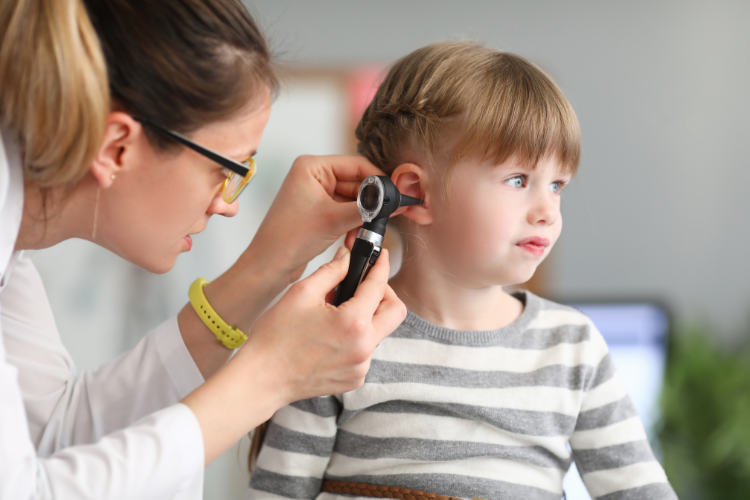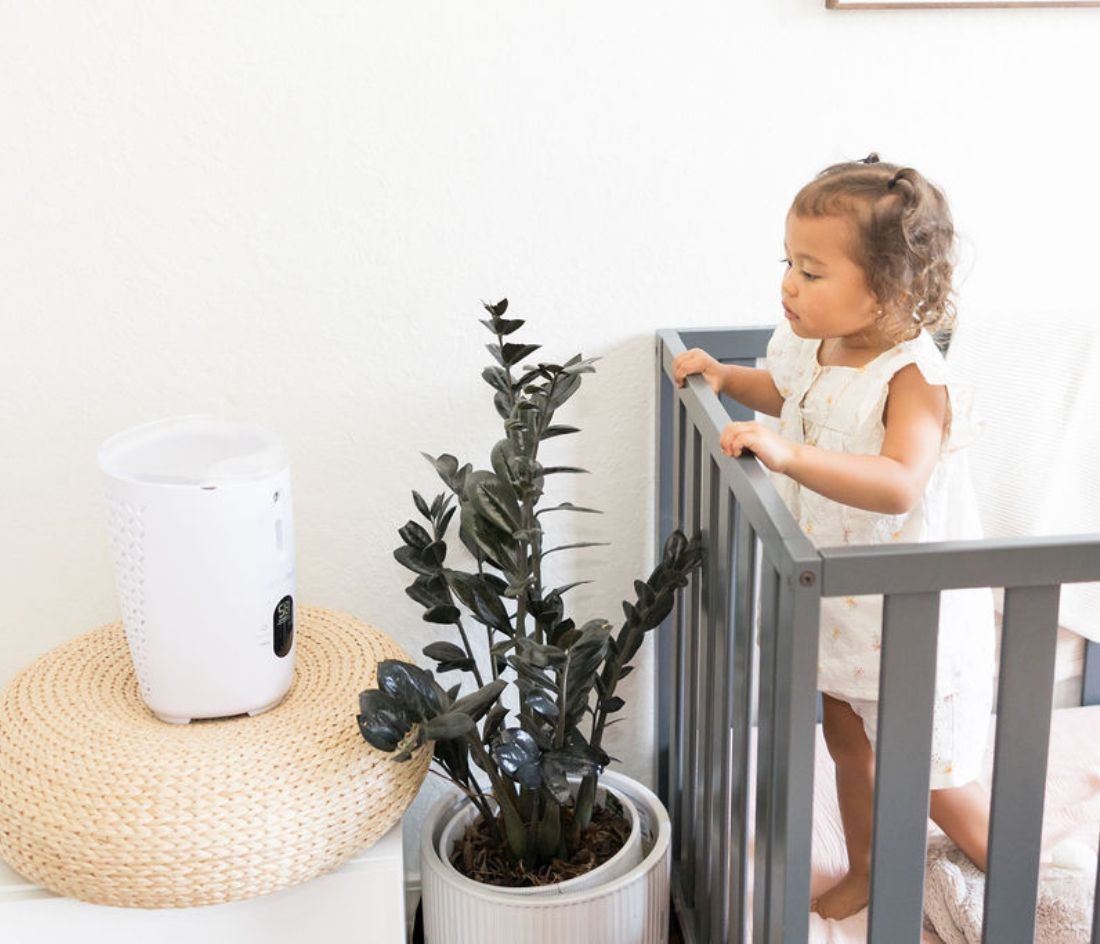Guest Post by Katy Fleming, MA, LPC, BSN, RN
It’s no surprise to parents that pediatric ENTs are in high demand as kiddos often struggle with returning ear infections and strep throat.
Whether your child has a common issue or a rare childhood condition, an otolaryngologist specializes in surgery and treatment related to the ears, nose, and throat.
Consider these questions and tips when picking a mom and kid-approved pediatric ENT for your little one.

6 Questions to Ask When Choosing a Pediatric ENT
When ear infections, nose bleeds, and sinus infections won’t leave your child or infant alone, it’s time to consider a pediatric ENT. A pediatric otolaryngologist specializes in treating problems with the ears, nose, and throat (ENT) in children.
A pediatric ENT has specialized training for more complex problems of the ears, nose, and throat, as well. Whether your child struggles with continual nosebleeds or lymphatic malformations, these extensively-trained physicians can diagnose and treat various conditions.
Find the best-fit ENT provider for your child after considering these 5 important questions.
1. What are their credentials?
When it comes to your child’s health, credential checks are important. Here’s an overview of the education and training for pediatric otolaryngologists.
- Undergraduate college (4 years)
- Medical school (4 years)
- Surgical internship + residency training (4-5 years)
- Optional: Fellowship training to specialize in pediatrics (1 year)
If the physician didn’t complete specific pediatric training, then discuss their experience working with children and infants. Adults and kiddos have different needs, so it helps to find an ENT experienced in the pediatric population.
Additionally, consider the physician’s experience and surgical training with your child’s specific medical needs.
2. What are their office hours?
As a parent, you don’t have time to waste. Whether you’re balancing a job, several children, after-school activities, other medical appointments, or all of the above– choose an office that aligns with your busy schedule.
Some offices will offer evening hours, early appointments before school, or even weekend hours. Something to consider is the office’s distance from your home, as well. A closer building with more limited hours may better suit your needs than an office over an hour away from home.

3. Do they have a rapport with my child?
Your little one needs to feel comfortable with their pediatric ENT. This will alleviate some anxiety during exams and will build your trust in the physician, as well.
Consider requesting a tour of the office. You’ll have an opportunity to assess their workflow and the comfort level of the office. Identify how you feel after interacting with the staff.
Some people may feel more at ease with a doctor of the same gender, as well. It’s important for both you and your child to feel safe and respected.
4. What happens if I have an emergency?
Although we never want an emergency to occur, we need to prepare ourselves for unexpected situations. What support does the ENT office provide during non-business hours?
Discuss the typical protocol for different types of medical emergencies. Some providers may have an emergency phone line or even an online option to submit requests.
5. Do they answer my questions appropriately?
It’s more than simply answering your questions. Medical terms are complex and confusing. As a parent, you need all the pertinent information to make vital medical decisions.
When interviewing potential pediatric ENTs, develop a few questions regarding your child’s symptoms. Again, the goal is to feel comfortable and confident in your child’s ENT. You want someone who respectfully collaborates with you.
If your kiddo enjoys asking questions, it’s equally as important to consider their comfortability and capability of understanding the situation.
6. How long would you wait for appointments?
Sometimes we can’t avoid long waits but assess your options. If the facility has a 10-month waiting list and your child has an urgent matter, consider another office.
It’s important to check with your insurance company and verify approved providers in your network. There’s also value in speaking with friends! Someone you trust may have a pediatric ENT referral to check out.

Want more parenting tips? You’ll love these:
- 5 Newborn Tips for Your First Week Home with a Newborn
- Causes of Baby Congestion (And When to Visit the Doctor)
- 5 Tips for Remembering to Administer Medication
- How to Monitor Your Child’s Breathing At Home
- Kids and Respiratory Bugs: When to Worry
Look for a pediatric otolaryngologist, or ENT specialist, with expertise and relatability. Consider factors such as distance from your home, office hours, and emergency protocol to choose the perfect fit for your little one.
As a licensed counselor and registered nurse, Katy approaches freelance writing with years of experience and a unique perspective. Alongside her partner, Katy loves to travel the world and embrace other cultures from volcanoes in Iceland to villages in India.
The Nozebot is a battery-powered suction device designed to clear nasal congestion in babies and children.



